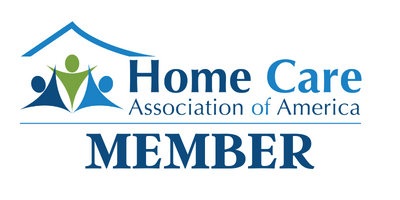If you have a loved one who has been diagnosed with dementia or Alzheimer’s disease, you know that their daily care and comfort needs are critically important to their health and wellbeing. You also know that those daily needs can be demanding and overwhelming. You need to keep yourself healthy, while still providing good care for your loved one. While there are many options for care including assisted or nursing home living, and adult daycare facilities, many people hope to keep their loved one in their home for as long as possible. One way to achieve this is to ensure the home is safe, and then to access in-home dementia care provided by skilled care providers. Getting some professional help with dementia care in the home allows for the individual to remain in the comfort and familiarity of their own home, but also give the primary caregivers a necessary break from the responsibility of round the clock care.
The Value of Remaining at Home
At home, your loved one will benefit from being in an environment that they are accustomed to, with little disruption to their familiar daily routines and activities. There will likely be some changes necessary to ensure the safety of the individual. The Alzheimer’s Association recommends looking at the home “through the eyes of a person with dementia”. While you don’t want to significantly restrict them, some safety items include:
- Keep walkways and stairwells well lit.
- Lock hazardous areas such as storage rooms, garages, stairways, and perhaps even the kitchen.
- Lock up any medications.
- Keep fire extinguishers, smoke detectors and carbon monoxide detectors in good working order.
- Remove any objects that can cause injury, including sharp and heavy objects and trip and fall hazards.
Bringing in Home Caregiver Services
Depending on the agency, in-home care services offer a wide range of assistance in the home including companion services, home health and skilled nursing care, and some even offer help with cooking and household chores. In-home care providers can be a huge relief to caregivers, allowing them to feel comfortable going out to run errands, enjoy some personal time, or simply getting a break from the demands of their responsibilities.
Not all in-home services are the same, so be sure to ask a lot of questions, and perhaps get recommendations from doctors and other providers who are familiar with your loved one’s particular diagnosis. Some in-home services provide only non-medical help, while others do not assist with personal care or chores. If you require medical care, be sure to check the provider’s screening, training and licensing requirements of their staff.
Common Types of In-Home Dementia Care Services:
- Skilled Nursing Care
- Personal Care Services
- Housekeeping Services
- Companion Services
- Transportation Services
Finding In-Home Services
Finding the right in-home services to meet your needs is essential to this being a positive, helpful experience for you and your loved one. Start your search by utilizing the resources you already have such as doctors and other healthcare providers. If you have a social worker on your case, they will have a list of providers. Also ask your friends, family, neighbors and coworkers for recommendations. Many people have worked with in-home care providers, or know someone who has, and getting first-hand opinions can be very useful. Dementia care and Alzheimer’s resources, local and online, will often also have a list of in-home care resources.
Choosing Providers
Do your homework and take the time to screen and consider your in-home care providers carefully. You want to find not only the right agency, but people who you feel comfortable having in your home and assisting your loved one. Before contacting prospective providers, it is helpful to sit down and create a list of care needs, as well as your expectations on how these needs will be met, the days and hours you require assistance, and any questions you have, before you talk directly with providers. Always call and speak to someone first to clarify exactly what services they offer, and get a feel for how professionally the organization is managed. Any quality provider will offer to come meet with you and your loved one in the home to discuss their services and get to know one another. Make sure the agency you choose conducts background checks on any staff that may be in your home, and ask for a list of references to speak with.
Before selecting an in-home service provider:
- Prepare a list of needs and questions.
- Call to screen possible providers.
- Interview providers in the home.
- Check references.
Participate in Dementia Care Support Groups
Caring for someone with dementia or Alzheimer’s disease is very challenging and can take a significant toll on a caregiver’s own health. Your emotional well-being is as important as your physical health, and most caregivers can really benefit from talking to others who are going through the same experiences. There are emotional support groups throughout the country, where caregivers can get the support and reassurance they need to manage the extreme stress that accompanies caring for an individual with dementia. Take time for your own care, and consider visiting a support group near you.
You can check with local adult care facilities and senior organizations for groups in your area. The Alzheimer’s Association offers support groups throughout the country led by trained individuals.
How Arcadia New England Can Help
At Arcadia our mission is to help individuals with dementia care, remain independent in the comfort of their own homes, and receive the help and care they need. Our fully screened and trained staff are ready to assist with medical care, personal care, and companionship needs. Let us take the worry of care off your shoulders and help you with your loved one’s care needs!


